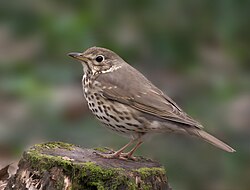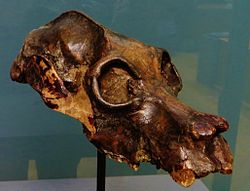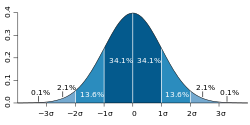
Back Portal:Wisseschaft ALS ውክፔዲያ:ሳይንስ Amharic بوابة:علوم Arabic قيسارية:صيونص ARY بوابة:علوم ARZ Portal:Elm Azerbaijani پوْرتال:علم AZB Портал:Фән Bashkir Portal:Wissnschoft BAR Portal:Siyensya BCL
Science portal

Science is a systematic discipline that builds and organises knowledge in the form of testable hypotheses and predictions about the universe. Modern science is typically divided into two or three major branches: the natural sciences (e.g., physics, chemistry, and biology), which study the physical world; and the social sciences (e.g., economics, psychology, and sociology), which study individuals and societies. Applied sciences are disciplines that use scientific knowledge for practical purposes, such as engineering and medicine. While sometimes referred to as the formal sciences, the study of logic, mathematics, and theoretical computer science (which study formal systems governed by axioms and rules) are typically regarded as separate because they rely on deductive reasoning instead of the scientific method or empirical evidence as their main methodology. (Full article...)
Featured article -
Featured pictures
Vital articles
Climate is the long-term weather pattern in a region, typically averaged over 30 years. More rigorously, it is the mean and variability of meteorological variables over a time spanning from months to millions of years. Some of the meteorological variables that are commonly measured are temperature, humidity, atmospheric pressure, wind, and precipitation. In a broader sense, climate is the state of the components of the climate system, including the atmosphere, hydrosphere, cryosphere, lithosphere and biosphere and the interactions between them. The climate of a location is affected by its latitude, longitude, terrain, altitude, land use and nearby water bodies and their currents. (Full article...)
Did you know...
- ... that a job offer from the Empire Cinema saved science fiction writer John Russell Fearn from factory-based war work that "damned near killed [him]"?
- ... that Cowbridge Girls School, built in 1896, was unusual for its time in providing a science laboratory for the students?
- ... that after Ursula K. Le Guin published her collection The Wind's Twelve Quarters, a reviewer called her the "ideal science fiction writer for readers who ordinarily dislike science fiction"?
- ... that a poem by Moses da Rieti includes an encyclopedia of the sciences, a Jewish paradise fantasy, and a post-biblical history of Jewish literature?
- ... that some of the optics for the James Webb Space Telescope were made at the NETPark science park in northern England?
- ... that the Springfield Science Museum is home to the oldest operating projection planetarium in the United States?
Get involved
| This portal needs to be updated. Please help update this portal to reflect recent events or newly available information. Relevant discussion may be found on the talk page. |

|

|
Science News
- 16 April 2025 –
- A colossal squid is filmed in the Southern Atlantic Ocean for the first time since the species was discovered in 1925. The 30 cm (12 in)-long juvenile was filmed by a team of scientists led by the University of Essex near the South Sandwich Islands at a depth of 600 m (2,000 ft). (BBC News)
- 14 April 2025 – Blue Origin NS-31
- A Blue Origin New Shepard launch vehicle makes a brief sub-orbital spaceflight, carrying six female space tourists, marking the first all-female spacecraft since 1963's Vostok 6 which had Valentina Tereshkova as the pilot and the spacecraft's sole passenger. (NPR) (USA Today)
- 1 April 2025 – Private spaceflight
- SpaceX successfully launches four humans into orbit over Earth’s poles for the first time for the human spaceflight mission Fram2. The journey will last three to five days. (The New York Times)
- 26 March 2025 –
- Scientists discover Mongolian dinosaur Duonychus tsogtbaatari. (NBC News)
- 25 March 2025 –
- A 6.7 magnitude earthquake hits New Zealand causing a tsunami warning to be issued. A tsunami was then spotted in Fiordland. [1]
- 7 March 2025 – Stand Up for Science 2025
- Organized demonstrations and walkouts of scientists take place across 30 cities in the United States and France in protest of the Donald Trump administration's grant budget and employment cuts to several government scientific agencies. (AP)
Related portals
Top 10 WikiProject Science Popular articles of the month -
Categories -
© MMXXIII Rich X Search. We shall prevail. All rights reserved. Rich X Search
![Image 1 Flocke on 9 April 2008, the day after her public debut Flocke (German pronunciation: [ˈflɔkə]) is a female polar bear who was born in captivity at the Nuremberg Zoo in Nuremberg, Germany on 11 December 2007. A few weeks after her birth, she was removed from her mother's care after concerns were raised for her safety. Although the zoo had established a strict non-interference policy with its animals, officials chose to raise the cub by hand. This decision came at a time when the zoo was receiving negative attention from the media after another female polar bear reportedly ate her newly born cubs. (Full article...)](http://upload.wikimedia.org/wikipedia/en/d/d2/Blank.png)

































































